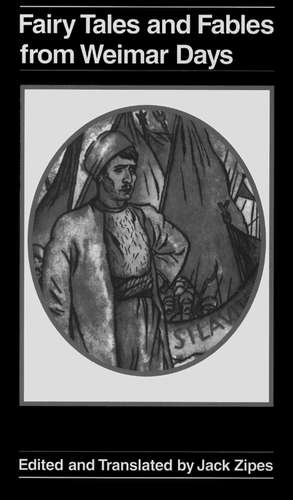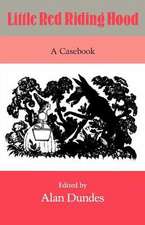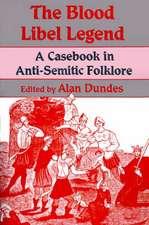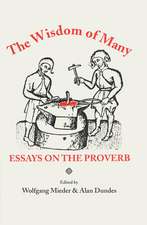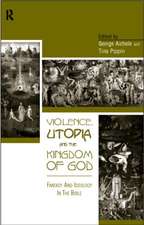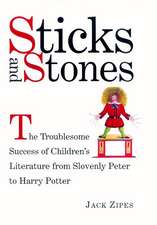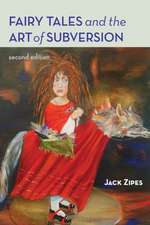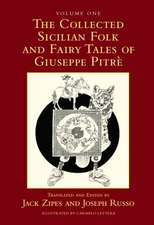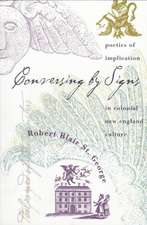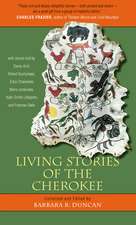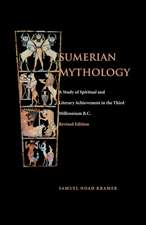Fairy Tales and Fables from Weimar Days
Autor Jack Zipesen Limba Engleză Paperback – 15 sep 1997
Political "fairy tales" by progressive Weimar activists
Deliberately transforming traditional German fairy tales and fables into utopian narratives and social commentary, political activists wrote the stories in this collection for progressive youth groups during the years of the German Weimar Republic, 1919 to 1933. Noted folklore scholar Jack Zipes has edited and translated these thirty-two tales by sixteen Weimar authors, who include such notable writers as Kurt Schwitters, Oskar Maria Graf, and Hermynia Zur Mühlen. Zipes has also provided an introduction, notes and bibliography, period illustrations, and concise biographies of the authors, many of whom were later killed, persecuted, or forced into exile by the Nazis.
Deliberately transforming traditional German fairy tales and fables into utopian narratives and social commentary, political activists wrote the stories in this collection for progressive youth groups during the years of the German Weimar Republic, 1919 to 1933. Noted folklore scholar Jack Zipes has edited and translated these thirty-two tales by sixteen Weimar authors, who include such notable writers as Kurt Schwitters, Oskar Maria Graf, and Hermynia Zur Mühlen. Zipes has also provided an introduction, notes and bibliography, period illustrations, and concise biographies of the authors, many of whom were later killed, persecuted, or forced into exile by the Nazis.
| Toate formatele și edițiile | Preț | Express |
|---|---|---|
| Paperback (2) | 85.95 lei 3-5 săpt. | |
| University of Wisconsin Press – 15 sep 1997 | 85.95 lei 3-5 săpt. | |
| Springer International Publishing – 26 feb 2018 | 192.47 lei 3-5 săpt. |
Preț: 85.95 lei
Nou
Puncte Express: 129
Preț estimativ în valută:
16.45€ • 17.17$ • 13.58£
16.45€ • 17.17$ • 13.58£
Carte disponibilă
Livrare economică 25 martie-08 aprilie
Preluare comenzi: 021 569.72.76
Specificații
ISBN-13: 9780299157449
ISBN-10: 029915744X
Pagini: 224
Dimensiuni: 127 x 216 x 13 mm
Greutate: 0.23 kg
Ediția:1
Editura: University of Wisconsin Press
Colecția University of Wisconsin Press
ISBN-10: 029915744X
Pagini: 224
Dimensiuni: 127 x 216 x 13 mm
Greutate: 0.23 kg
Ediția:1
Editura: University of Wisconsin Press
Colecția University of Wisconsin Press
Descriere
Political "fairy tales" by progressive Weimar activists
Deliberately transforming traditional German fairy tales and fables into utopian narratives and social commentary, political activists wrote the stories in this collection for progressive youth groups during the years of the German Weimar Republic, 1919 to 1933. Noted folklore scholar Jack Zipes has edited and translated these thirty-two tales by sixteen Weimar authors, who include such notable writers as Kurt Schwitters, Oskar Maria Graf, and Hermynia Zur Mühlen. Zipes has also provided an introduction, notes and bibliography, period illustrations, and concise biographies of the authors, many of whom were later killed, persecuted, or forced into exile by the Nazis.
Deliberately transforming traditional German fairy tales and fables into utopian narratives and social commentary, political activists wrote the stories in this collection for progressive youth groups during the years of the German Weimar Republic, 1919 to 1933. Noted folklore scholar Jack Zipes has edited and translated these thirty-two tales by sixteen Weimar authors, who include such notable writers as Kurt Schwitters, Oskar Maria Graf, and Hermynia Zur Mühlen. Zipes has also provided an introduction, notes and bibliography, period illustrations, and concise biographies of the authors, many of whom were later killed, persecuted, or forced into exile by the Nazis.
Cuprins
Recovering the Utopian Spirit of Fairy Tales and Fables from the Weimar Republic; Jack Zipes.- Happiness; Kurt Schwitters.- A Fairy Tale about God and Kings; Carl Ewald.- The Giant and his Suit of Armour; Edwin Hoernle.- The Boy who Wanted to Fight with a Dragon; Berta Lask.- Kuttel Daddeldu Tells his Children the Fairy Tale about Little Red Cap; Joachim Ringelnatz.- The Little King and the Sun; Edwin Hoernle.- The Honest Seamen / Learn to Grasp the World from Others; Joachim Ringelnatz.- The Fence / The Servant; Hermynia Zur Mühlen.- The Victor; Béla Balázs.- The Patched Trousers; Bruno Schönlank.- The Fairy Tale of the Wise Man; Eugen Lewin-Dorsch.- The Holy Wetness; Maria Szucsich.- The Enchanted King / Burufu the Magician; Robert Grötzsch.- Baberlababb / The Fairy Tale of the King; Oskar Maria Graf.- The Castle with the Three Windows; Heinrich Schulz.- The Giant Spider; Anna Mosegaard.- Felix the Fish; Robert Grötzsch.- The Poodle and the Schnauzer / The Chameleon; Edwin Hoernle.- The Triumph of the Wolves / The Chameleon / The Revolution in the Zoo; Felix Fechenbach.- The Fairy Tale of the Bear, the Wolf and the Sly Fox; Béla Illés.- The Glasses; Hermynia Zur Mühlen.- Once upon a Time There was a Tiny Mouse; Kurt Schwitters.- The Silent Engine Room; Heinrich Schulz.- Notes on the Authors & Illustrators.
Recenzii
“Zipes’s collection is a marvellous book, one which will appeal to both the general reader and those working on fairy tales or those researching the Weimar Republic or German intellectual life before the outbreak of the Second World War.” (Paul Quinn, Gramarye, Issue 17, 2020)
“This collection of thirty literary stories in the genre of fairy tales, assembled and translated by Jack Zipes, offers a good read to anyone who enjoys stories. … This collection of stories is enjoyable also because of the smooth translations. … The tales collected and presented in this volume are important for scholars of literature as well as of folktales, fairy tales, and fables. The volume is also meant for the simple pleasure of reading inspiring stories” (Sadhana Naithani, Journal of Folklore Research, April, 2019)
“Its creative wave of tales, some playful, some ironic, some wrenchingly utopian, speaks directly to the world we find ourselves in today.” (Jo Radner, Storytelling Magazine, 2018)“This collection of thirty literary stories in the genre of fairy tales, assembled and translated by Jack Zipes, offers a good read to anyone who enjoys stories. … This collection of stories is enjoyable also because of the smooth translations. … The tales collected and presented in this volume are important for scholars of literature as well as of folktales, fairy tales, and fables. The volume is also meant for the simple pleasure of reading inspiring stories” (Sadhana Naithani, Journal of Folklore Research, April, 2019)
Notă biografică
Jack Zipes is Professor Emeritus of German and Comparative Literature at the University of Minnesota, USA. Some of his recent publications include: Why Fairy Tales Stick: The Evolution and Relevance of a Genre (2006), The Enchanted Screen: The Unknown History of Fairy-Tale Films (2010), and Grimm Legacies: The Magic Power of Fairy Tales (2014).
Textul de pe ultima copertă
This book is a collection of traditional German fairy tales and fables, deliberately transformed into utopian narratives and social commentary by political activists in the Weimar Republic (1919-1933). Against a backdrop of financial and political instability, widespread homelessness, and the reformation of public institutions, numerous gifted writers such as Berta Lask, Kurt Schwitters, Hermynia zur Mühlen, Oskar Maria Graf, Bruno Schönlank, and Joachim Ringelnatz responded to the need for hope among the common people by creating fairy tales and fables that offered a new and critical vision of social conditions. Though many of their tales deal with the grim situation of common people and their apparent helplessness, they are founded on the principle of hope. This revised edition includes over 50 illustrations by contemporary international artists who reveal how similar the Weimar conditions were to the conditions in which we presently live. In this respect, the Weimar fairy tales andfables have not lost their spirit and significance.
Caracteristici
Presents a fascinating and accessible collection edited and translated by the world's leading expert on fairy tales Updates the previous edition with a revised introduction, 3 new tales and over 50 new illustrations Includes translations of work by a range of noted Weimar writers including Kurt Schwitters
